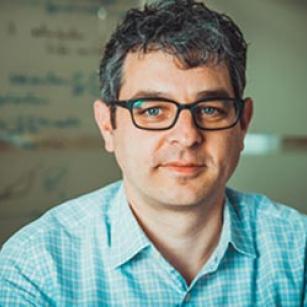
77 Massachusetts Ave.
Cambridge, MA 02139
Degrees
- PhD in Medical Physics, Health Sciences and Technology, MIT, 2004
- MS and MPhil in Physics, Yale University, 1996 and 1998
Bio
Thomas Heldt joined the MIT faculty in 2013 as a core member of the Institute for Medical Engineering and Science (IMES) and the Department of Electrical Engineering and Computer Science. Additionally, Thomas is a Principal Investigator with MIT’s Research Laboratory of Electronics (RLE). He directs the Integrative Neuromonitoring and Critical Care Informatics Group in IMES and RLE.
Thomas’ interests began meandering between basic science and clinical medicine in his native Germany, where he started studying physics and medicine at Johannes Gutenberg-Universität, Mainz, Germany. He subsequently received the MS and MPhil degrees in Physics from Yale University and the PhD degree in Medical Physics from the Harvard-MIT Division of Health Sciences and Technology in 2004. He completed postdoctoral training with the Laboratory for Electromagnetic and Electronic Systems at MIT before he co-founded and co-directed the Computational Physiology and Clinical Inference Group at RLE.
In addition to his MIT appointments, Thomas holds courtesy research appointments at Harvard Medical School, Boston Children’s Hospital (Neurology), Massachusetts General Hospital (Emergency Medicine), and Boston Medical Center (Neurosurgery).
Research
Thomas’s research interests focus on signal processing, mathematical modeling, and model identification to support real-time clinical decision making, monitoring of disease progression, and titration of therapy, primarily in neurocritical and neonatal critical care. In particular, Thomas is interested in developing a mechanistic understanding of physiologic systems, and in formulating appropriately chosen computational physiologic models for improved patient care. His research is conducted in close collaboration with colleagues at MIT and clinicians from Boston-area hospitals.
Selected Honors/Awards/Societies
- Louis D. Smullin (1939) Prize for Teaching Excellence, Electrical Engineering & Computer Science, MIT
- W.M. Keck Career Development Chair in Biomedical Engineering
- Distinguished Lecturer, IEEE Engineering in Medicine & Biology Society
- Burgess ('52) & Elizabeth Jamieson Award for Excellence in Teaching, Electrical Engineering & Computer Science, MIT
- Visiting Professor, ETH Zürich
- Senior Member, IEEE Engineering in Medicine and Biology Society
Selected Publications
- Imaduddin SM, Fanelli A, Vonberg FW, Tasker RC, Heldt T. “Pseudo-Bayesian model-based noninvasive intracranial pressure estimation and tracking.” IEEE Transactions on Biomedical Engineering (In press)
- Filbin MR, Thorsen JE, Zachary TM, Lynch JC, Matsushima M, Belsky JB, Heldt T, Reisner AT. “Antibiotic delays and feasibility of a 1-hour-from-triage antibiotic requirement: Analysis of an emergency department sepsis quality-improvement database,” Annals of Emergency Medicine (In press)
- Imaduddin SM, LaRovere KL, Kussman BD, Heldt T. “A time-frequency approach for cerebral embolic load monitoring,” IEEE Transactions on Biomedical Engineering (In press)
- Fanelli A, Vonberg F, LaRovere K, Walsh B, Smith E, Robinson S, Tasker RC, Heldt T. Fully automated, real-time, calibration-free, continuous noninvasive estimation of intracranial pressure in children. Journal of Neurosurgery: Pediatrics (In press)
- Wadehn F, Weber T, Mack D, Heldt T, Loeliger H-A. A framework for model-based separation, detection, and classification of eye movements. IEEE Transactions on Biomedical Engineering (In press)
- Lai H-Y, Saavedra-Peña G, Sodini CG, Sze V, Heldt T. Measuring saccade latency using smartphone cameras. IEEE Journal of Biomedical and Health Informatics (In press)
- Heldt T, Zoerle T, Teichmann D, Stocchetti N. Intracranial pressure and intracranial elastance monitoring in neurocritical care. Annual Reviews of Biomedical Engineering 21:523-549, 2019.
Full list of Prof. Heldt’s publications can be found at http://www.rle.mit.edu/incci/publications/
Courses Taught
- HST.541/6.021 Cellular Neurophysiology and Computing (2013-2019, 2022)
- HST.521/6.022 Quantitative and Clinical Physiology (2014-2022, 2022)
- 6.011 Communication, Control, and Signal Processing (2015)
Description
Thomas’s research interests focus on signal processing, mathematical modeling, and model identification to support real-time clinical decision making, monitoring of disease progression, and titration of therapy, primarily in neurocritical and neonatal critical care. In particular, Thomas is interested in developing a mechanistic understanding of physiologic systems, and in formulating appropriately chosen computational physiologic models for improved patient care. His research is conducted in close collaboration with colleagues at MIT and clinicians from Boston-area hospitals.
